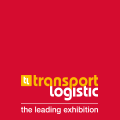California Governor Gavin Newsom's state budget plan was released Monday, and its $286 billion top line figure includes an unexpectedly generous line item for shipping. If it is enacted, the State of California will spend $2.3 billion on seaport-related improvements, roughly on par with federal funding for the nationwide Port Infrastructure Development Program (PIDP).
The largest share, $1.2 billion, goes to critical port-related infrastructure projects like railyard expansions, bridges and
zero-emission modernization projects. The primary objective is to "improve supply chain resiliency," reflecting the need to speed up cargo movement at the congested San Pedro Bay seaport complex. The funds will also leverage available pools of matching federal funding.
An additional $875 million will be set aside for zero-emission port equipment, drayage trucks and related infrastructure. $110 million more will fund a new Goods Movement Training Center for workforce development in Southern California. Another $30 million will be spent on improving data connectivity and business processes at seaports, and $40 million will go for speeding up the issuance of new commercial drivers' licenses for truckers.
The LA/Long Beach complex could certainly use a boost in throughput capacity. As of Friday, a record 105 container ships were awaiting a berth, primarily through a remote-queuing system that allows vessels to wait at far-off locations. And congestion at the port complex does not appear to be getting better: according to the Journal of Commerce, a shortage of space at the terminals is contributing to longer berth times.
The port electrification funding has attracted early praise from environmental organizations, who have long called for clean-air improvements at the state's busy seaports - particularly Los Angeles and Long Beach.
“There is no time to waste in tackling the climate and environmental impacts that are happening at the ports and we applaud Gov. Newsom for including funding and leadership to move the state of California from dirty fossil-fueled ships, planes and rails to zero-emissions solutions," said Teresa Bui, the state climate policy director for advocacy organization Pacific Environment.
Source www.maritime-executive.com
 San Pedro Bay is home to the largest container terminal complex in the U.S. (AAPA file image)
San Pedro Bay is home to the largest container terminal complex in the U.S. (AAPA file image)


.jpg)






